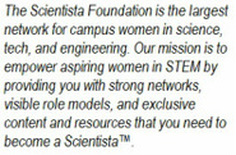|
Kristyn Borrelli If I could eliminate anything about my undergraduate experience, thus far, it would be my fear of approaching professors outside of class. Here is some quick advice on taking advantage of your most valuable resource as an undergraduate—bottom line, don’t be afraid! In case you didn’t know, here’s why your professors are the key to your success as an undergraduate: 1. They are your unofficial advisors No one knows a department better than those who teach within it. If you find that your assigned advisor is lacking in specific knowledge about a course you want to know more about, get ambitious and contact the listed professor! Setting up a meeting with a professor can help you get a general idea of what to expect from a class and whether it is a good fit for you. Whether you’re concerned about the workload, subject matter, or even the personality of the professor, this is a great way to resolve your curiosity. (Bonus: If you decide to take the class, the professor will know who you are before the semester even begins!) 2. They want to see you succeed Don’t let your first communication with a professor be a last-minute plea for extra credit! Professors are generally willing to go out of their way to help a struggling student when help is sought without a great deal of hesitation. If you can’t make normal office hours, many professors will schedule an appointment to pinpoint and resolve any issues you are having. If you read the syllabus for a class, this is usually heavily emphasized; professors don’t want you to fail and usually suggest ways to excel on exams and important assignments. At the end of the semester, certain professors may consider your efforts when calculating final grades and help your transcript reflect your proactivity. 3. Personalized recommendations Applying for research, a crucial part of the journey to either graduate or medical school comes with the seemingly daunting task of obtaining letters of recommendation from past professors or mentors. As someone with no previous research experience, strong letters of recommendation could be extremely helpful in securing a spot amongst more experienced competition. If you are struggling, make it known to your professor, and they will often make a note of any improvements you make and your efforts to ensure your success. If you find an interesting class to be easy, still make an effort to get to know your professor! Getting an “A” in a class doesn’t necessarily mean you were a memorable or outstanding student. Going to office hours just to make yourself known and expressing your interest in the subject will help you stand out even in a large, lecture-based class. Either way, the attempts you make at establishing a relationship and understanding with your professors will not go unnoticed. Asking for a letter of recommendation down the line will be a more comfortable process, and the personalized content of the letter will be immensely helpful during an application process! 4. They know where opportunity is Generally speaking, many professors in the sciences run labs that conduct research with the assistance of both graduate and undergraduate students. In addition to openings for undergraduates in their own lab, they know the faculty within their department and are often aware of other research opportunities. If you are a truly outstanding student, there are also prestigious scholarships you could be on track to be awarded or research positions outside the university your professor would happily recommend you for. Don’t be afraid to ask about internships or other opportunities outside of class. Even if they don’t personally have an opening in their lab for an undergraduate, professors may be able to assist you with knowledge your advisor and friends lack. 5. They help you establish networking skills Your professors are a part of a functional network of incredibly intelligent people. As an undergraduate, there is no better time to begin establishing professional relationships and honing your personal networking skills. A professor who also considers you a friend and is fully aware of your ambition could be your link to a future employer. Not only can you learn a great deal just by stopping by office hours to discuss research and current advancements in their respective field of expertise, but you can also establish an important professional connection in the process. Your networking and communication skills will be crucial in securing career opportunities down the line. It is also important to remember that once you are employed, your connections don’t disappear! Working in the sciences means constant progress and advancement, and having friends who can act as resources will be an excellent perk of having a strong social network.
0 Comments
Leave a Reply. |
Education BlogAbout ScientistaSubscribe!NEW!New PostsWhat's HotClick to set custom HTML
You Might Like...
Connect With UsLatest tweets |
The Scientista Foundation, Inc. All Rights Reserved © 2011-2021 | Based in NY | [email protected]
The Network for Pre-Professional Women in Science and Engineering
The Scientista Foundation is a registered 501(c)(3) -- Donate!
The Network for Pre-Professional Women in Science and Engineering
The Scientista Foundation is a registered 501(c)(3) -- Donate!



 RSS Feed
RSS Feed









